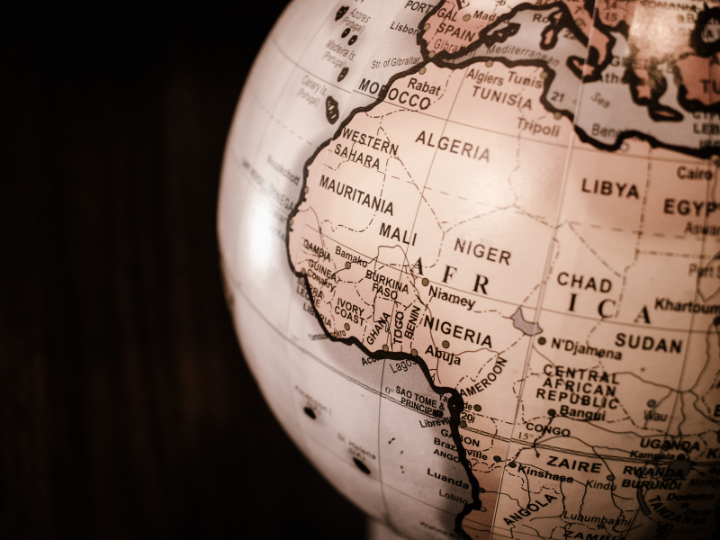by Benjamin Fox
Last February’s EU-African Union summit in Brussels, delayed for a year by the COVID-19 pandemic, was supposed to herald the start of a renewed push towards a ‘partnership of equals’ between the two blocs.
However, it was immediately overshadowed by Russia’s invasion of Ukraine, which has made EU-Africa relations even more complicated and its spillover effects will continue to dominate EU-Africa ties over the coming months.
There are no such set-piece summits planned for 2023.
At a follow-up meeting between the European Commission and African Union in November, the two sides agreed that the EU would start to allocate funds for infrastructure investment from its Global Gateway programme and provide support for an African Medicines Agency, alongside the creation of a “high-level dialogue on economic integration with a view to strengthen trade relations and sustainable investment.”
These promises hint at much lower ambition. The Global Gateway programme, intended to be the EU’s answer to China’s Belt and Road initiative, will start paying out €750 million over the coming year. Compared to the tens of billions offered by Beijing, it is a drop in the ocean.
In the meantime, the fallout from Russia’s war will continue to spill over into EU-Africa relations.
African states have been paying a high price from the resulting disruption to wheat and grain imports and key agricultural inputs such as fertilisers. Coupled with high inflation – another effect of Russia’s war – these have pushed the likes of Ghana, Egypt, and Kenya to agree bailouts with the International Monetary Fund in recent months.
Russian lobbying in Africa, meanwhile, is increasing, with reports that Andrey Melnichenko, the founder of fertiliser giant Eurochem, has been courting African National Congress officials in South Africa in a bid to ease the sanctions regimes and the resulting tensions will only get worse in the coming months if the war continues.
Earlier this week, EU foreign affairs high representative Josep Borrell made his foreign first trip of the new year to Morocco.
The North African state is one of the EU’s most important partners on the continent, particularly on migration, security and trade. However, like many African countries, Morocco has also sought to retain good diplomatic relations with Russia and refused to condemn its invasion of Ukraine.
The shadow of Russian influence also hangs over the EU’s embattled diplomatic and security agenda in the Sahel.
The EU chief diplomat Borrell stated last year that the EU “is not abandoning the Sahel” but is instead “restructuring our presence” in the region, but the announcement of troop withdrawals by France and German last year and over the coming twelve months points to difficult months ahead.
Last year, the German government stated that it would start pulling out troops by mid-2023 and completely withdraw its soldiers by May 2024,
The increasing anti-French and, more broadly, anti-Western sentiment, in the Sahel region was underscored by Burkina Faso’s military junta moving to expel France’s ambassador, Luc Hallade, earlier this week, months after its neighbour Mali did the same.
It also comes less than two weeks after the United Nations/ humanitarian coordinator in Burkina Faso, Barbara Manzi, was also declared persona non grata.
The military regimes in Mali and Burkina Faso have both stepped up their diplomatic contacts with Russia, and the Russian mercenary organisation, the Wagner Group, is increasingly influential. It is likely that Chad, Niger, and other countries in the Sahel and neighbouring regions will also be targeted by the Kremlin.
The EU has recently launched programmes aimed at tackling what the European Commission describes as Russian ‘disinformation’ on social media in the Sahel. Officials in Brussels are also keenly aware that Russia wants to expand its presence via the Wagner group in the region. Less clear is whether they can do anything to stop it.
Last autumn, Borrell gave the bloc’s emissaries in Africa a dressing down for failing to build better relations, yet his poor choice of words in a speech just weeks later, describing Europe as a garden and the world beyond as ‘a jungle’, were received with some bemusement across African capitals.
The EU’s Africa priorities for the coming year will be largely unchanged. The incoming Swedish EU presidency has promised renewed dialogue with African leaders on migration, development, trade, security and climate change. A group of EU countries will also push for increased gas imports from Algeria, and elsewhere.
Meanwhile, migration control will remain politically important in EU capitals although the number of irregular migrants arriving in Spain from Africa dropped by over 20% in 2022, a sign that numbers crossing the Mediterranean Sea are in decline.
It will be worth watching if Hungary finally drops its block of EU ratification of the post-Cotonou Agreement, which covers political and economic ties with the 88 member states of the African, Caribbean and Pacific community.
Although Hungarian officials were critical of the Commission for not demanding stronger provisions on migrant returns in the treaty, it is unclear whether Budapest is using its block as leverage in its own long-running battle with the EU executive on accessing post-pandemic recovery funds or as a point of principle on policy.
Also intriguing will be the fallout from the Qatar-gate scandal, which has already resulted in criminal charges against past and current MEPs for allegedly receiving bribes from Qatari officials, and is likely to prompt a re-write of rules on foreign lobbying in the EU institutions.
There are rumours in Brussels that Morocco has sought to win favourable treatment by using tactics on EU officials though, like Qatar, these have been denied by Rabat.
*first published in: Euractiv.com




 By: N. Peter Kramer
By: N. Peter Kramer
